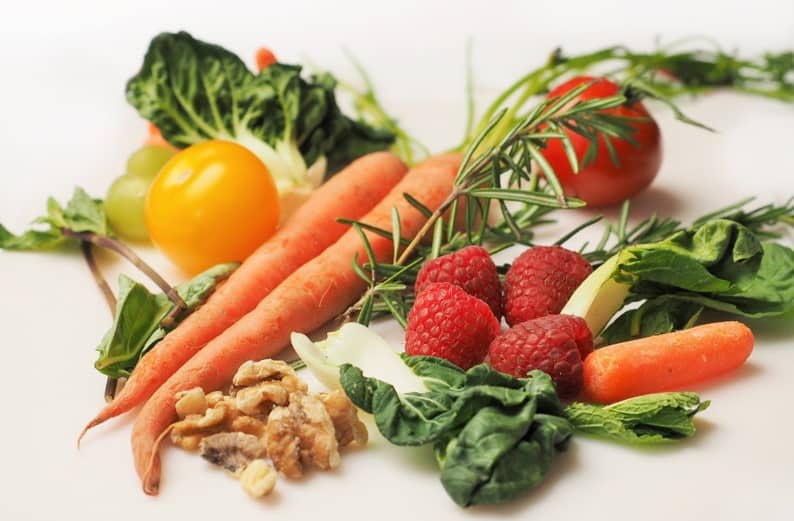
Hypothyroidism is a disease caused by a malfunctioning thyroid. Although people suffering from this disease are not subject to a specific diet, some foods promote better thyroid function. What foods should I eat or avoid if I have hypothyroidism? In this blog, you will learn how improving your diet can promote better thyroid health and function.
What is the thyroid?
The thyroid is a butterfly-shaped endocrine gland located in the central part of the neck. Its function is to produce and release the thyroid hormones T4 (thyroxine) and T3 (triiodothyronine). In the early stages of hypothyroidism, there may be no visible symptoms.
Functions of the thyroid
The hormones produced by the thyroid are involved in almost all essential functions of our body, for example:
- Growth
- Proper function of the nervous system
- Vitamin A production
- Regulation of body temperature
- Regulation of heart rate
- Adequate cholesterol concentration
- Metabolism (control of body weight)
What is hypothyroidism?
Hypothyroidism is a disease characterized by the decreased functional activity of the thyroid gland. Some of the symptoms of this disease are:
- Fatigue
- Weight gain
- Problems tolerating cold
- Constipation
- Dry skin
- Heavy and irregular menstrual periods
- Infertility
- Depression
Who is most susceptible to hypothyroidism?
- Women
- People over 60 years of age
- People with a family history of hypothyroidism
- People with autoimmune diseases such as diabetes and celiac disease.
What foods are recommended for hypothyroidism?
Although there isn’t a special diet for people with hypothyroidism, some foods could help improve thyroid function. Among these types of foods are:
1) Seaweed. Due to its high iodine content, it facilitates the production of thyroid hormones.
2) Fish. Due to its high iodine and fatty acid content, it is a food that reduces inflammation and supports healthy thyroid function (Omega 3).
3) Almonds, quinoa, sesame, pumpkin, meat, and legumes. They support the production and operation of thyroid hormones due to their high zinc content.
4) Turkey, Brazil nuts, and eggs. These are foods rich in selenium, an element closely linked to zinc, as it converts thyroid hormones (from T4 to T3).
5) Red meat, spinach, and seafood. These foods are rich in iron. Iron deficiencies are related to thyroid malfunction since this element is used by the enzyme that creates thyroid hormones.
6) Fermented foods, such as yogurt and kefir. Some causes of hypothyroidism arise from inflammatory problems. These foods have substances that prevent inflammation.
7) Dairy products. These foods contain vitamin D, which often has low levels in people with hypothyroidism.
8) Buckwheat, rice, and quinoa. These cereals do not contain gluten, a substance that generates inflammation and that only in some cases, could worsen hypothyroidism.
What foods are not recommended for hypothyroidism?
The following foods may interfere with thyroid function or medications prescribed by a doctor:
1) Brussels sprouts, cauliflower, broccoli, and cabbage. This kind of food prevents iodine from being used to produce thyroid hormones by inhibiting its absorption. These types of food are referred to as “goitrogens“. You can diminish the effect of these foods by cooking them thoroughly or fermenting them. This way, you can take advantage of these foods’ properties.
2) Sunflower and safflower oil. These foods contain “nitrites,” substances that block the action of thyroid hormones.
3) Foods with excess sodium, such as canned food. Excess salt activates immune cells in the gut, favoring the appearance of autoimmune diseases, such as hypothyroidism.
4) Soy. Soy decreases the action of thyroid medication.
5) Foods containing gluten, such as barley, rye, and wheat. Gluten contains a protein called “gliadin,” which is difficult to digest and generates pro-inflammatory particles. These particles cause the immune system to confuse and attack thyroid cells. It is not recommended to consume gluten if the origin of hypothyroidism is autoimmune (Hashimoto’s disease).
6) Coffee. Drinking only one cup of coffee a day is recommended because the excess caffeine increases the permeability of the intestine. It generates the absorption of harmful substances that can cause antibodies against the thyroid. Also, coffee has “tannins,” which can block the absorption of thyroid medication. Specialists recommend that if you are going to drink coffee, it should be two hours after taking your medication.
Conclusion
Although hypothyroidism is a non-curable disease, it is possible to control it and keep it stable, avoiding the complications it can generate. Only an expert can provide you with adequate treatment. It is essential to see an endocrinologist, a medical specialist who treats hormone-related diseases. This specialist can answer your questions about the disease and prescribe the appropriate medication.
You can receive the nutrients you need to boost the health of your thyroid by modifying your diet. Improving your diet is beneficial because the drug may or may not function based on your dietary choices. Also, you must consult a naturopathic doctor for further information on the type of food recommended for hypothyroidism.
Author Bio
Aaleyah Brown has been in the healthcare field with comprehensive achievements across public health services, counseling and youth development disciplines. Along with the experience, she is a creative problem solver with a desire to help people and drive social and physical change.
NutriFusion
Just 1 in 10 adults meet the federal fruit or vegetable recommendations, according to a study published in CDC’s Morbidity and Mortality Weekly Report (MMWR). This report highlights that very few Americans eat the recommended amount of fruits and vegetables every day, putting them at risk for chronic diseases.
Studies have shown that supplementation with extracts from fruits and vegetables may improve age-related changes.
NutriFusion develops all‐natural fruit and/or vegetable powders that are nutrient dense for use in foods, beverages, supplements, and pet foods.
NutriFusion can help! Visit us at www.nutrifusion.com.


